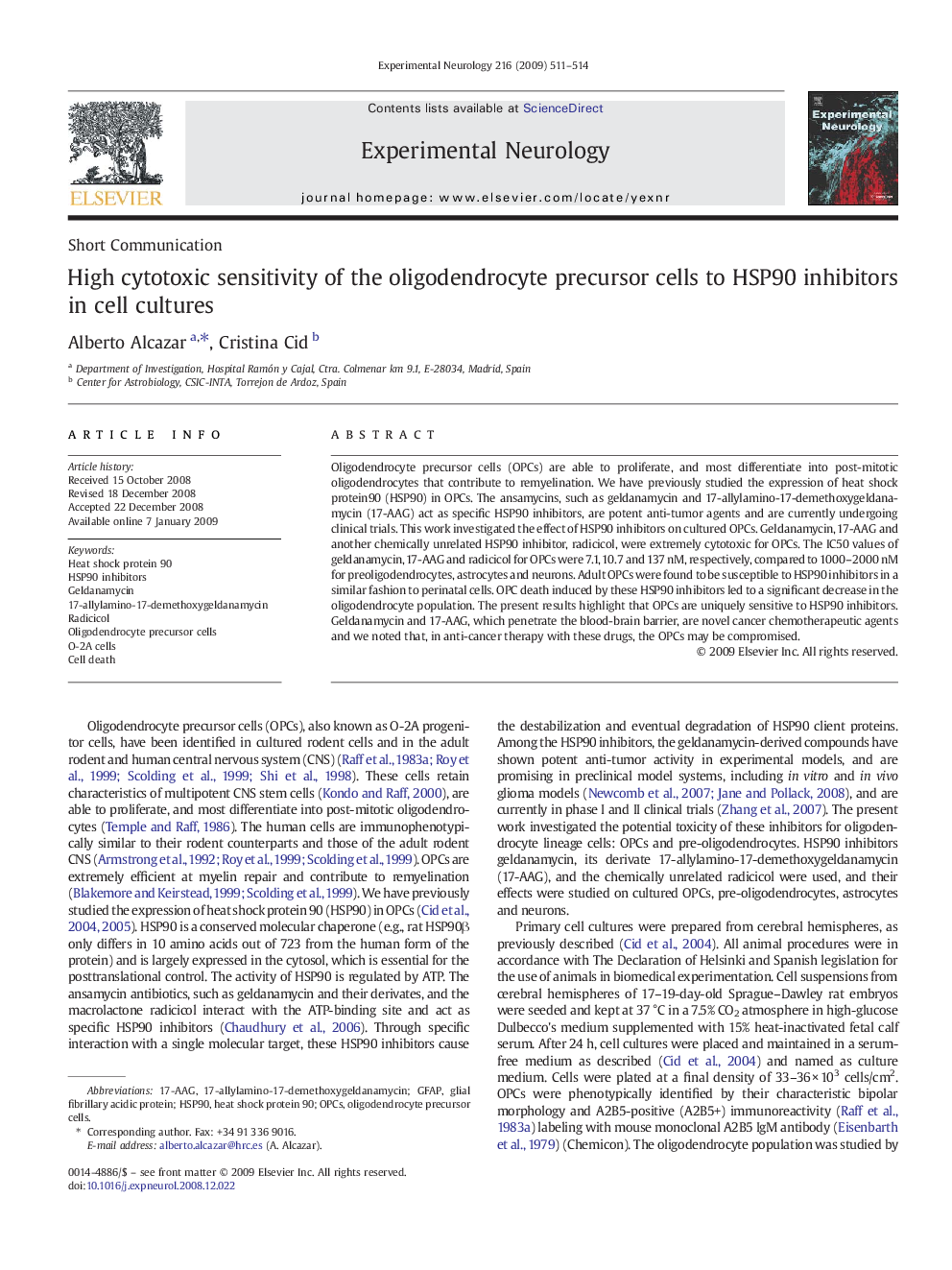| Article ID | Journal | Published Year | Pages | File Type |
|---|---|---|---|---|
| 3056507 | Experimental Neurology | 2009 | 4 Pages |
Oligodendrocyte precursor cells (OPCs) are able to proliferate, and most differentiate into post-mitotic oligodendrocytes that contribute to remyelination. We have previously studied the expression of heat shock protein90 (HSP90) in OPCs. The ansamycins, such as geldanamycin and 17-allylamino-17-demethoxygeldanamycin (17-AAG) act as specific HSP90 inhibitors, are potent anti-tumor agents and are currently undergoing clinical trials. This work investigated the effect of HSP90 inhibitors on cultured OPCs. Geldanamycin, 17-AAG and another chemically unrelated HSP90 inhibitor, radicicol, were extremely cytotoxic for OPCs. The IC50 values of geldanamycin, 17-AAG and radicicol for OPCs were 7.1, 10.7 and 137 nM, respectively, compared to 1000–2000 nM for preoligodendrocytes, astrocytes and neurons. Adult OPCs were found to be susceptible to HSP90 inhibitors in a similar fashion to perinatal cells. OPC death induced by these HSP90 inhibitors led to a significant decrease in the oligodendrocyte population. The present results highlight that OPCs are uniquely sensitive to HSP90 inhibitors. Geldanamycin and 17-AAG, which penetrate the blood-brain barrier, are novel cancer chemotherapeutic agents and we noted that, in anti-cancer therapy with these drugs, the OPCs may be compromised.
